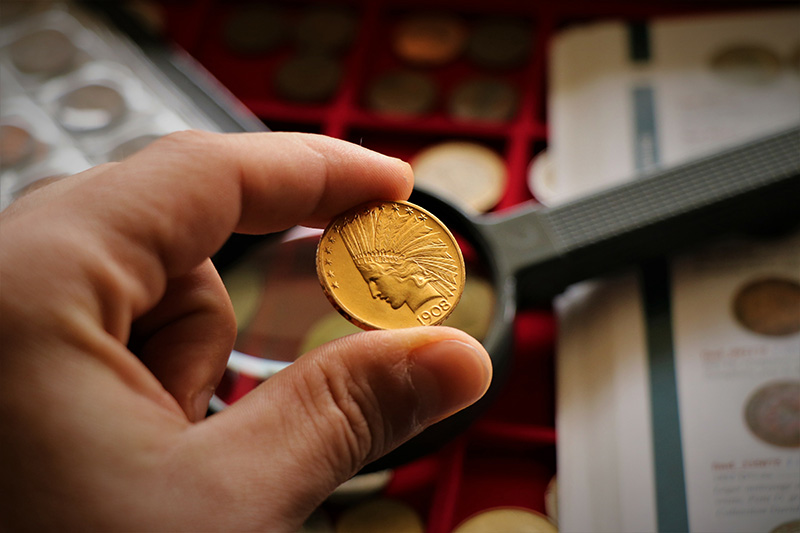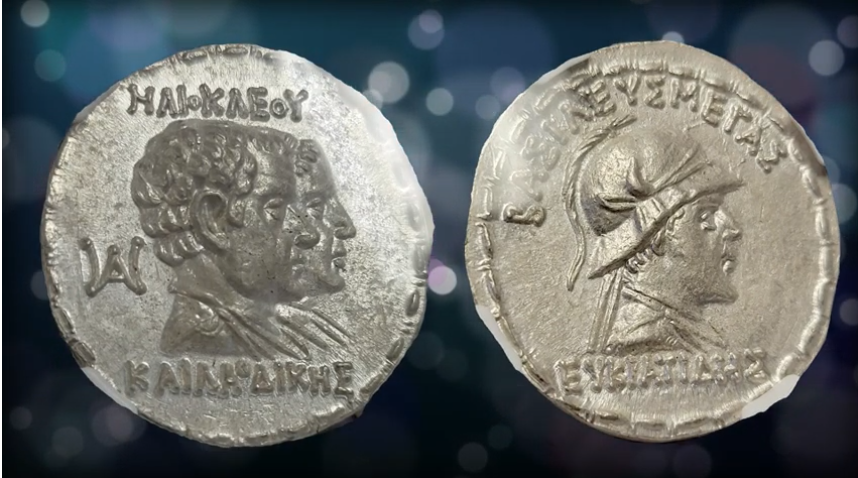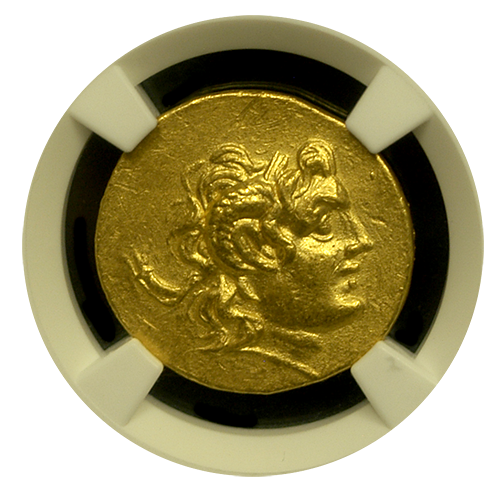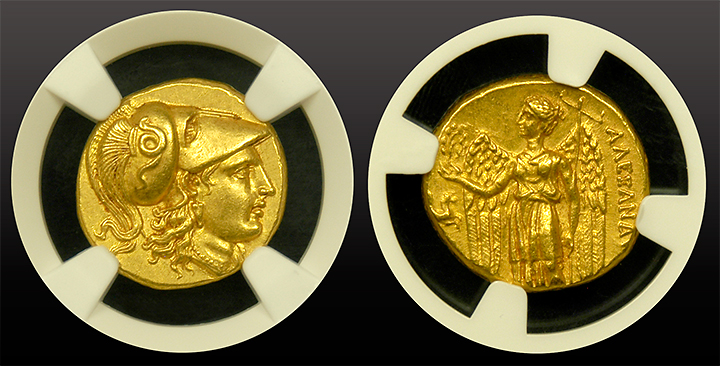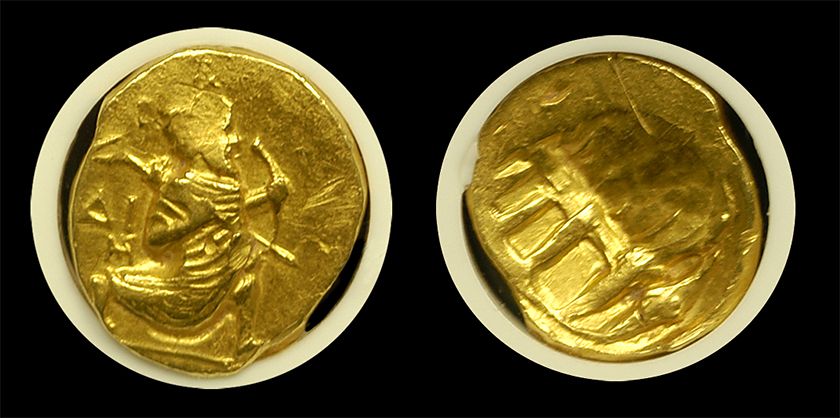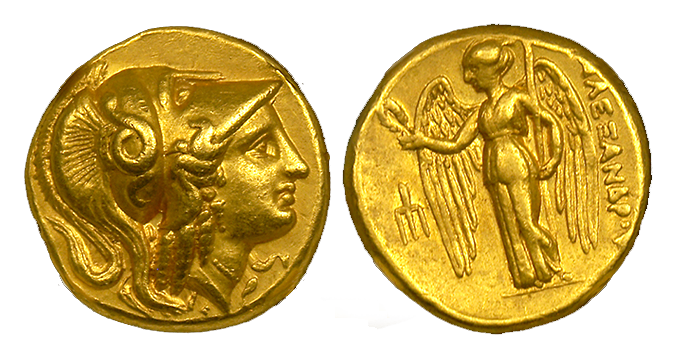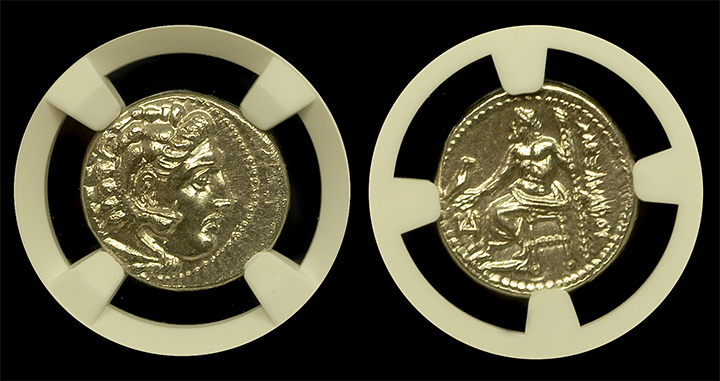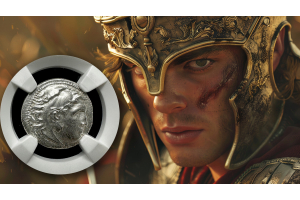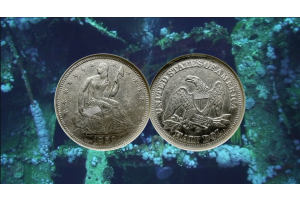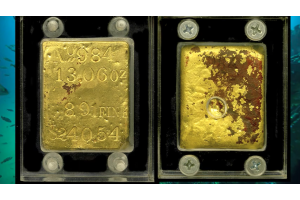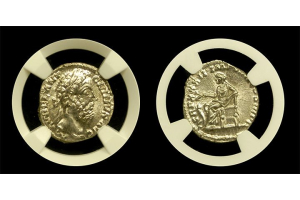Alexander the Great
- Posted: April 10, 2025Read more »
Conquering Minds
Alexander the Great didn’t just conquer territories. He conquered minds. Furthermore, he used gold to do it.
His armies stretched from Greece to the edge of India. But his influence traveled even farther, thanks to his coins.
These weren’t just currency—they were propaganda. Indeed, they spread his image, ideals, and imperial message everywhere they circulated. They became Alexander the Great's Legacy in Gold!
The Power of a Portrait
- Posted: January 26, 2024Categories: Electrum Coins, Rare US Coins, Rare Gold Coins, Egyptian Empire, Alexander the Great, Rare World Coins, Rare Silver Coins, Shipwreck Coins, Medieval Coins, Ancient Persian Coins, Ancient Roman Coins, Silver Reales, Ancient Coins, Gold Escudos, Macedonian Empire, Ancient Greek Coins, Byzantine Empire, US Bronze Medal, Platinum Coins, World Gold Coins, Gold and Silver Bullion, Lydian Empire, Ancient Silver Coins, Ancient Egyptian EmpireRead more »
Introduction: A Guide to Building Your Unique Treasure
In the world of rare coin collecting, enthusiasts are captivated by history and welcome tips on collecting rare coins. Museums, such as the American Numismatic Association Money Museum, showcase extraordinary collections. The Smithsonian National Numismatic Collection and the British Museum contribute to our appreciation of rare coins, emphasizing their historical significance.
The allure of rare coins extends beyond museum walls. Auction houses and private collectors frequently make these numismatic treasures available for sale. Rare coin collecting is not just a cultural and historical journey; it's also an opportunity for financial gain. Rare collections, featuring sought-after coins, can
- Posted: October 28, 2022Read more »
Many ancient coin investors do not know very much about the Greco-Bactrian Kingdom founded in 256 BC. Who knew this Persian area was once a Hellenistic-era Greek state? Surprisingly, known as the "land of a thousand golden cities". In fact, the capital Bactra was one of the largest and richest cities of the ancient world.
This ancient kingdom covered what is today Afghanistan, Uzbekistan, Tajikistan, and Turkmenistan. It also covered parts of Iran and Pakistan. It is fair to say it covered most of the Indian subcontinent. Bactria covered the easternmost part of Alexander The Great's conquered territory.
General Seleucus, I took over - Posted: September 28, 2022Read more »
Was Thrace influenced by Greece & the Macedonian Empire? It is a fact, Thrace was conquered by Philip II, king of Macedonia. This occurred in the 4th century BC. Once Philip the II died Thrace became a part of the great kingdom of Alexander the Great. Following Alexander’s death, his empire was divided among his generals, who established independent kingdoms including Thrace.
Lysimachus, who reigned from 323 to 281 BCE, was the general who succeeded Alexander as the ruler of Thrace. According to Herodotus, an ancient Greek historian, Thrace was highly influenced by Greece and the Macedonian Empire's culture. But, were they?
Yes, Thracian coinage gave homage to the once great leader of the Macedonian Empire. The Thracians under the leadership of Lysimachus used Alexander's portrait on the front of their coins. However, on the back - Posted: July 22, 2022Read more »
The world’s first coins were minted in ancient Lydia. Lydia's King Croesus became the first ruler to separate gold from other metals. He issued the world's first pure gold and pure silver coins. The Persian Empire, also known as the Achaemenid Empire, took up the idea of coinage upon defeating King Croesus in 547 B.C. However, it wasn't until Alexander the Great of the Macedonian Empire, who conquered the Persian Empire, that the first international currency evolved. In fact, some believe that Alexander was the father of the first international currency.
Alexander ascended to the throne in 336 BC following the assassination of his father Philip II. He became king at the very young age of 20. In addition, Alexander adopted the Attic coinage standard. Unfortunately, Alexander spent his ruling years conducting lengthy military campaigns and really didn't get to enjoy his conquest much. He was always too busy conquering more lands throughout Western Asia and Egypt. - Posted: February 19, 2022Read more »
The Persian Achaemenid Empire ruled Babylon for about two hundred years. They were the first super power of the ancient world. Their vast empire reached from India down to Egypt and all the way up to the northern border of Greece. The Achaemenids were an unstoppable force until Alexander did the unthinkable. Alexander the Great conquered Babylon and defeated the Achaemenids in 331 BCE. Alexander's actions change the entire ancient world.
Alexander learned to be a great leader and powerful imperialist from his father Philip II. He also learned to be a battle strategist. Moreover, he knew what the odds would be against an outmatched manpower. But, despite the odds Alexander relied on speed and distraction to achieve victory after victory. Subsequently, Alexander the Great
- Posted: October 29, 2021Read more »
Philip III King of Macedon was the son of Philip II. Alexander the Great, also known as Alexander III, was also the son of Philip II. Philip III's actual name at birth was Arrhidaeus and his mother was Philinna of Larissa. Philip III didn't ascend to the Macedonian throne until after the death of Alexander III. Even though Philip III was older than Alexander he was overlooked because he was half-witted and an illegitimate son. Philip III ended up merely serving as a figurehead. He was only placed king as a pawn and out of necessity. It was Alexander III who claimed the throne right after his father’s bodyguard assassinated him. In fact, Alexander killed all his rivals before they could challenge him. However, he took Arrhidaeus under his wing because he was very fond of him. Alexander even brought his older brother on campaigns in order to protect his life.
The Death of Alexander the Great
When Alexander the Great died on June 10 323 BC a crisis ensued. Who would be Macedonia’s new king? Philip Arrhidaeus had to become the candidate even though he was mentally challenged. Alexander III's wife Roxana was pregnant and was waiting to give birth to their son. He was to become the eventual heir to the throne and was to be named Alexander IV. It was decided that Philip III would reign as the appointed regent. He would be Philip III of Macedon in name only until the new Alexander IV would become old enough to rule. Philip III King of Macedon did not have a long lasting reign. Only 6 years after becoming King he was murdered by Alexander III's mother, Olympias. She put to death Philip Arrhidaeus and his wife Cassander due to her using her husband to advance her own cause. Cassander’s brother and a hundred of his partisans who were conspiring with Cassander were also killed. This cleared the path for Alexander IV to become Macedonia’s rightful new king.
- Posted: February 27, 2021Read more »
This Alexander The Great Silver Drachm is a beauty! Few names resonate in history like that of General Alexander the Great of Macedon. Even today 2,350 years after his death Coinage issued under Alexander are highly desirable and are sought after by all sorts of collectors.
A Silver Drachm Like this...Will Sell Quickly!
We are pleased to offer this remarkably high end silver drachm graded by NGC Ancients. Because it has been certified in choice mint state condition, it is highly desirable. It also has received the fine style designation, which implies it to be of the highest artistic quality. Furthermore, this particular coin is known to be a lifetime issue. This means it was struck while Alexander was still alive. Coins that were issued after





